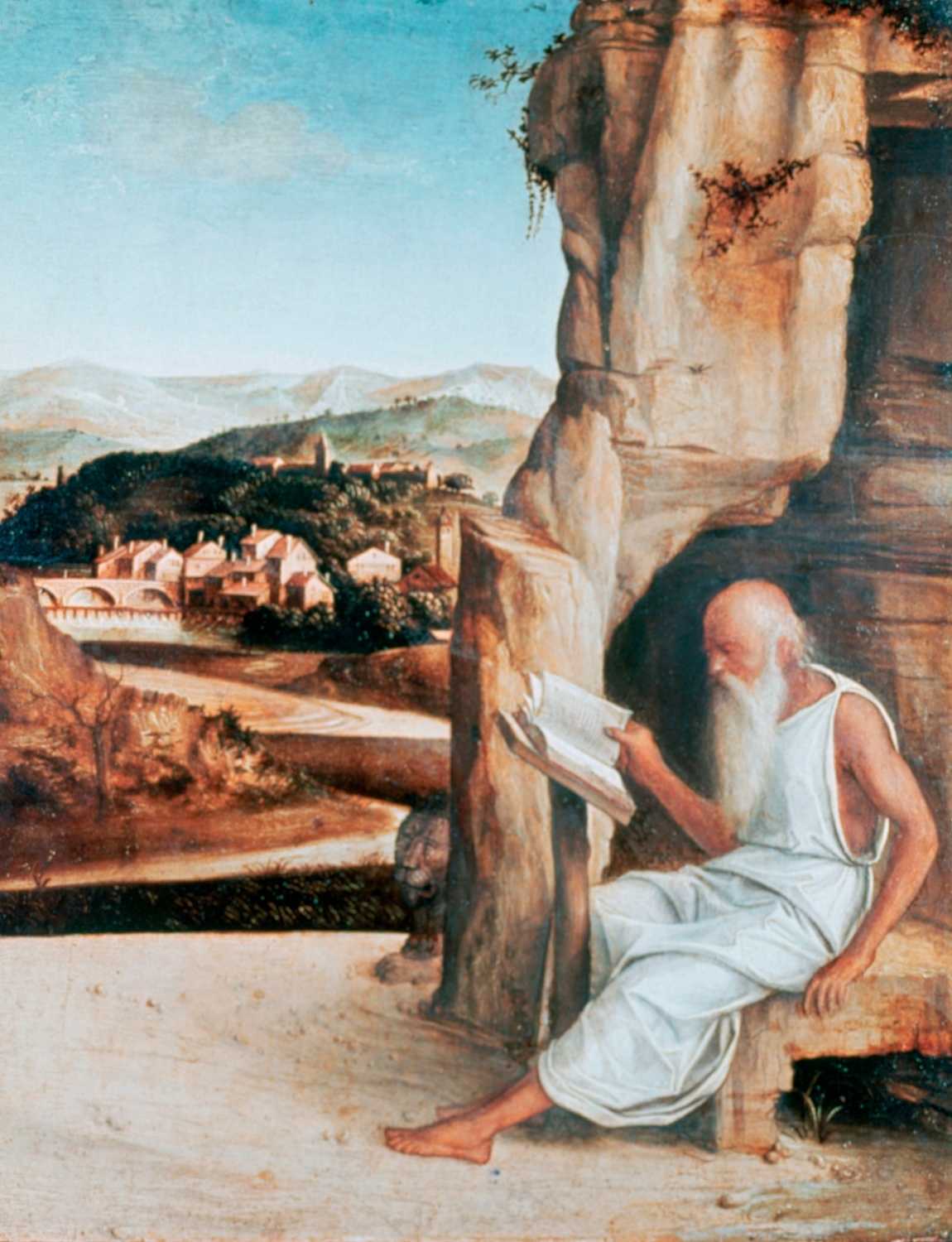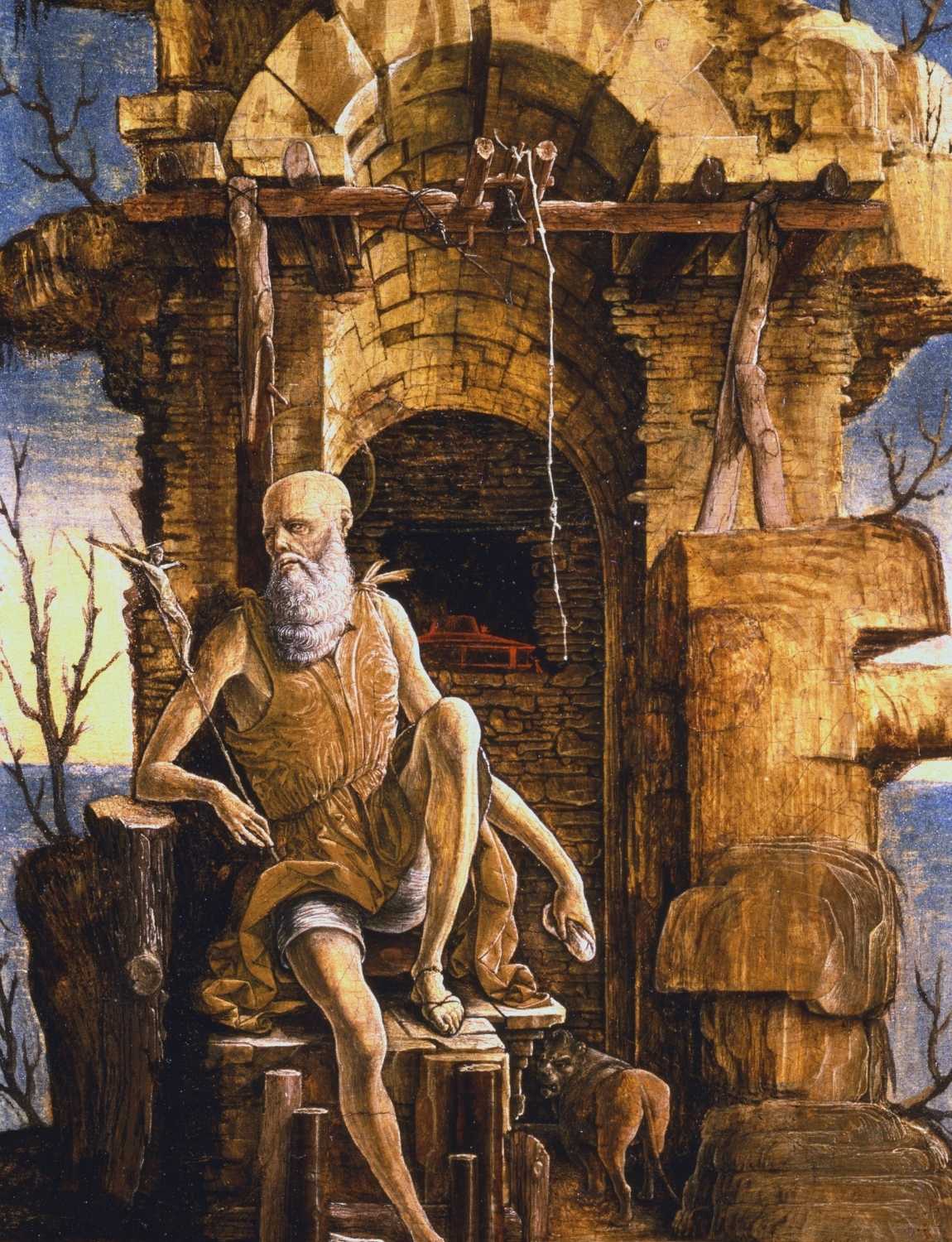St. Jerome

September 30, 2022
Author: Hannah DeVivo
Peace be with you! Today, September 30th, is the feast of Saint Jerome, an incredibly intelligent man and a Doctor of the Church. Let’s take a look together at the life of this great saint.
Early Life of Saint Jerome
Saint Jerome was born Eusebius Sophronius Hieronymus around 342 AD. He was likely born into a wealthy family as he was given an excellent education from a young age. Jerome learned Latin and Greek and studied grammar, philosophy, and rhetoric in Rome under Aelius Donatus, a famous Roman grammarian. Jerome was a dedicated student, but in his free time his pursuits were that of pleasure. It seems that from a young age, he invested himself wholeheartedly in whatever he did. He was passionate both as a scholar and in worldly affairs.
Jerome became a Christian in his twenties. He threw himself into the work of Theology and began ecclesiastical training. During his travels, he came upon a monastery which sparked his interest in monastic living—a life he would later pursue. He began translating books and quickly became proficient due to his deep knowledge and love of language.

Workings of Saint Jerome
Around the year 374, Jerome became ill. Disease took the lives of several of his friends, but fortunately Jerome survived. During this time, he had visions and dreams which increased his faith. In one particular dream, Jerome was accused before a tribunal of the Lord for being a Ciceronian and not a Christian. He was beaten in the dream, and upon awakening, decided to never read pagan literature again. As stated above, Saint Jerome did not do things half-way.
Saint Jerome lived in the desert as a hermit for four years. It was a very difficult time for him; he was lonely and often ill. He prayed and fasted, fully embracing the penitential time. When Jerome left the desert, Church officials and Pope Damasus wanted him to become a priest. Despite the hardships, Jerome preferred living as a hermit. He eventually agreed to be ordained, with the promise that he would not have to serve in a ministry and could continue to live a monastic life.
In 382, after studying for a time with a renowned theologian, Jerome returned to Rome and became the secretary of Pope Damasus. During this time, he spoke to everyone about asceticism, the practice of severe self-discipline and avoidance of all forms of indulgence. In fact, Jerome used to carry a stone with him, which he would use to inflict corporal punishment when he found himself in the midst of temptation. He strictly reprimanded those who indulged in sinfulness and was equally severe with his own shortcomings.

Saint Jerome’s Final Years
While in Rome, Saint Jerome began one of his most important works—translating the Bible from the original Hebrew and Greek into Latin. Pope Damasus died shortly after Jerome began working for him, and subsequently, tensions rose. Many people disliked Jerome because of his sarcasm and attitude. They also accused him of inappropriate conduct with Saint Paula, who was a student of asceticism. She was a widow and mother of four who obtained counsel from Jerome. They became friends and she later assisted him in his works.
Jerome decided to leave Rome and head for the Holy Land. He was soon accompanied by Paula and more of his followers. They built a monastery in Bethlehem which also contained dormitories for women. He continued his work of translating the Bible, and also spent his time writing in defense of the virginity of Mary. He was known to engage in many discussions and was easily angered. He strikes me as someone who lived for the Truth and preserved it at all costs.
Jerome died peacefully on September 30th, 420 in Bethlehem and his body now rests in the Basilica of Saint Mary Major in Rome.

The Legacy of Saint Jerome
Saint Jerome is remembered for his many historical and theological writings and commentaries. He is especially renowned for his translation of the Scripture into the Latin Vulgate, which became the standard Latin Bible in the Catholic Church. As a person, Saint Jerome was known for his anger, intensity, intelligence, and sharp wit (often accompanied by sarcasm). I think it’s very important that we remember these characteristics of his. They remind us that we are all called to be saints. Despite our flaws and the shortcomings that sometimes arise from our various temperaments, or perhaps in tandem with them, God has called us. He has set aside a place in heaven for us and called us to be His disciples who have the ability to demonstrate a life filled with grace and serve as role models for the future saints to come.
Saint Jerome, pray for us.
For a Saint Jerome medal, click here!
Before You Go
Do you have a special devotion to Saint Jerome?
Do you feel encouraged when reflecting upon the humanity of the saints?
Did you learn anything new in this article?
I would LOVE to hear from you. Send me an email to Catholic-Living@Autom.comBe sure to follow and subscribe to the links below for more tips and information.
![[Consumer]Autom [Consumer]Autom](https://cdn11.bigcommerce.com/s-zjzn8ssx4n/images/stencil/350x117/autom_w_tag_1641942220__31718.original.jpg)
